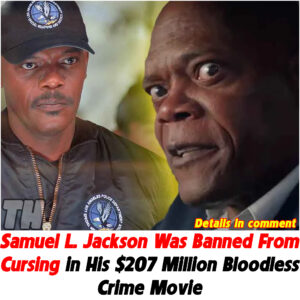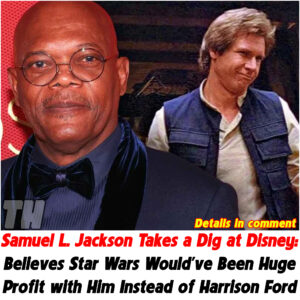In recent times, the entertainment industry has been abuzz with rumors and accusations aimed at one of its most beloved figures, Dwayne “The Rock” Johnson.
Reports have surfaced suggesting that Hollywood is attempting to “cancel” the iconic action star, citing various reasons such as tardiness on set and alleged unprofessional behavior.

The controversy surrounding Johnson centers primarily on his involvement in the production of the film “Red One,” a high-profile project backed by Amazon MGM.
Reports have suggested that the film’s budget ballooned to over $250 million, purportedly due to Johnson’s chronic lateness and lack of professionalism on set.
Additionally, rumors have circulated about Johnson’s alleged habit of urinating in a bottle while working out, further tarnishing his reputation.
However, it is crucial to separate fact from fiction when dissecting these allegations. Firstly, the claims of Johnson’s tardiness and unprofessionalism lack concrete evidence and rely solely on anonymous sources.
While it is not uncommon for film productions to encounter challenges and delays, pinning the blame solely on Johnson seems unjustified, especially when key stakeholders involved in the project have refuted such claims.
Moreover, the narrative surrounding Johnson’s supposed “peeing in a bottle” habit is misleading and sensationalized.
While Johnson has openly admitted to urinating in a bottle during his workouts at his personal gym, there is no evidence to suggest that he engages in this behavior on film sets or expects others to clean up after him.
The inclusion of this anecdote in the discourse seems more aimed at sensationalizing rather than shedding light on genuine concerns.
It is also essential to consider Johnson’s track record and reputation within the industry. Throughout his career, Johnson has been praised for his work ethic, professionalism, and dedication to his craft.
Countless colleagues and collaborators have spoken highly of his character and commitment, painting a stark contrast to the negative portrayal propagated by certain individuals.
In light of these considerations, it becomes apparent that the campaign to vilify Johnson may be driven by ulterior motives rather than genuine grievances.
The entertainment industry is no stranger to controversies and smear campaigns, often fueled by personal vendettas or professional rivalries.
In Johnson’s case, it seems that certain individuals may be attempting to capitalize on his immense popularity and success by tarnishing his reputation.
As consumers of media and entertainment, it is essential to approach such narratives with skepticism and critical thinking.
Instead of blindly accepting sensationalized headlines and rumors, we should demand transparency, accountability, and evidence-based reporting.
By standing up against misinformation and baseless accusations, we can ensure that genuine talent and integrity prevail in the entertainment industry.
In conclusion, Dwayne “The Rock” Johnson remains a beloved figure in the world of entertainment, admired for his talent, charisma, and work ethic.
While allegations of misconduct may surface from time to time, it is crucial to evaluate them objectively and discern fact from fiction.
Ultimately, Johnson’s legacy will be defined by his contributions to cinema and his unwavering commitment to his craft, rather than by sensationalized headlines and unfounded rumors.
News
(VIDEO) Dana White REACTS to Mike Tyson vs Jake Paul POSTPONED FIGHT
**Anderson Silva and Chael Sonnen: From Boxing Match to Hall of Fame Induction** In an unexpected turn of events, former MMA rivals Anderson Silva and Chael Sonnen…
(VIDEO) Mike Tyson Just ANNIHILATED Jake Paul And WARNED To FINISH Him!
**Iron Mike vs. The Problem Child: The Showdown of Eras** The boxing world is abuzz with the upcoming clash between two unlikely adversaries: the legendary Mike Tyson…
(VIDEO) MIKE TYSON SCARY NEW FOOTAGE!👀(FULL TRAINING) Mayweather, Lennox & Joe Rogan WORRIED for JAKE PAUL??
### Mike Tyson vs. Jake Paul: The Fight That Never Was The world of boxing thrives on spectacle, and few events captured the public’s imagination like the…
(VIDEO) Joe Rogan Just RIPPED Jake Paul After He Quit Mike Tyson Fight
### Jake Paul vs. Mike Tyson: The Fight That Never Was In a world where spectacle often triumphs over substance, Jake Paul’s announcement to fight Mike Tyson…
(VIDEO) Floyd Mayweather Just WARNED Jake Paul To CANCEL Might Tyson Fight
### Jake Paul vs. Mike Tyson: The Looming Showdown and Floyd Mayweather’s Dire Warning In the ever-dramatic world of boxing, a potential clash between social media sensation…
(VIDEO) Joe Rogan Just EXPOSED Jake Paul With LEAKED Audio Files For BRIBING The Referee
In an unexpected twist, a leaked video has surfaced showing a private match between Jake Paul and Mike Tyson, revealing that Paul had to pay approximately $100…
End of content
No more pages to load











